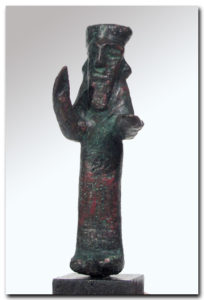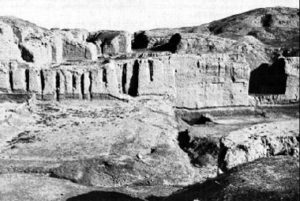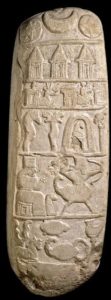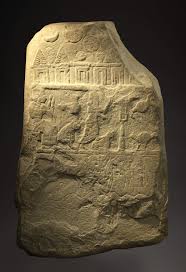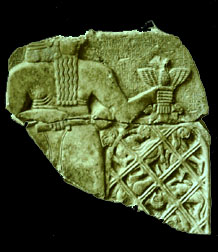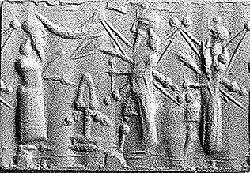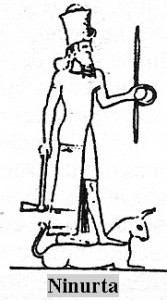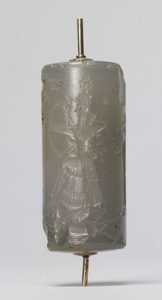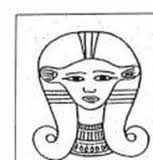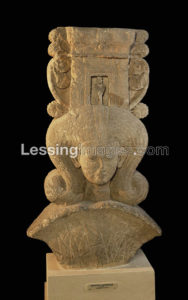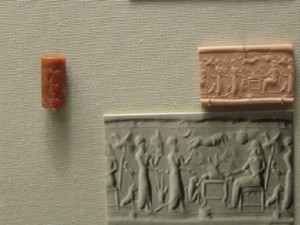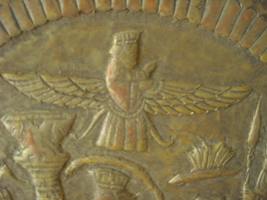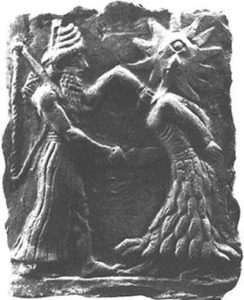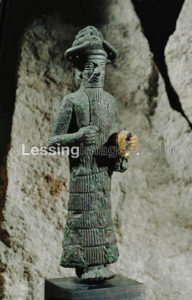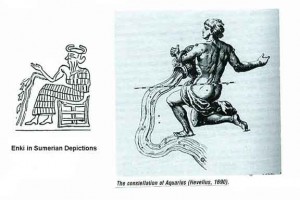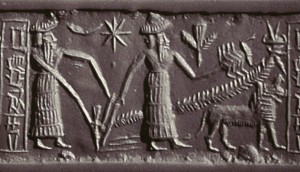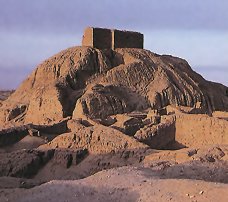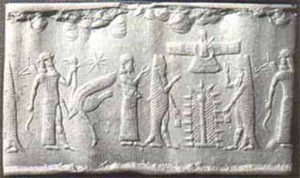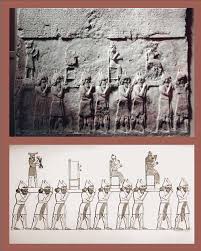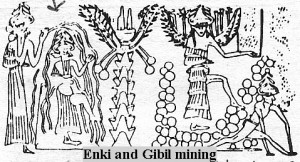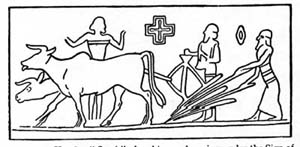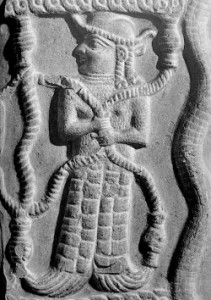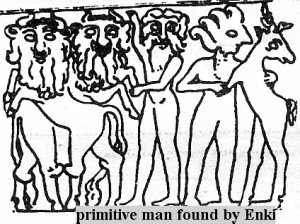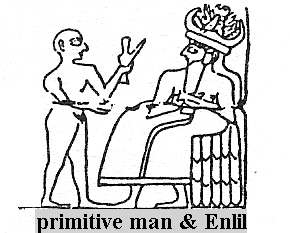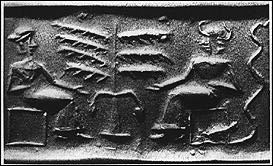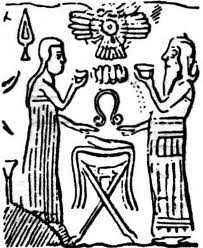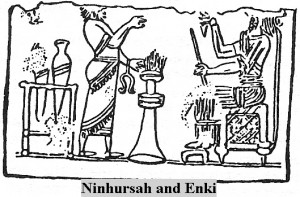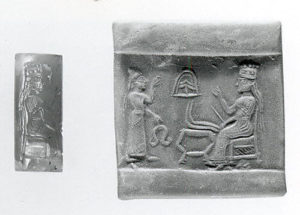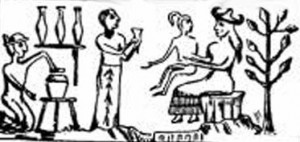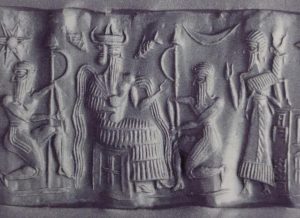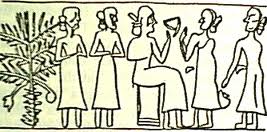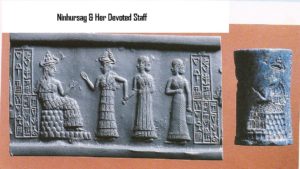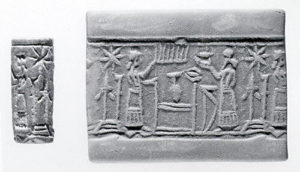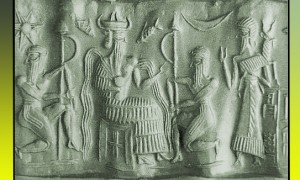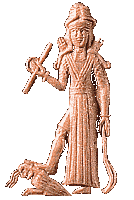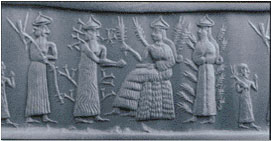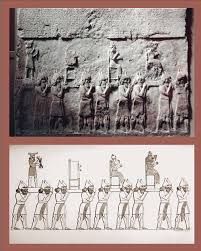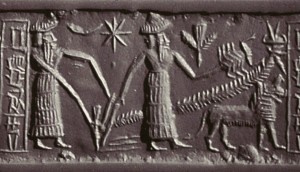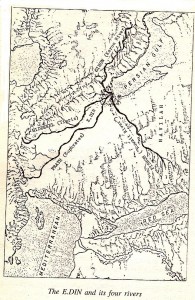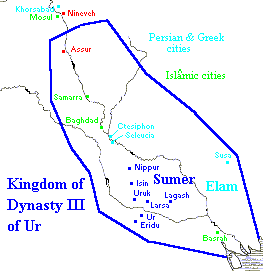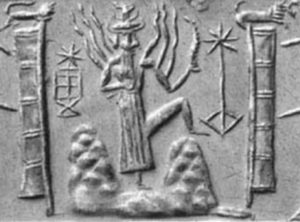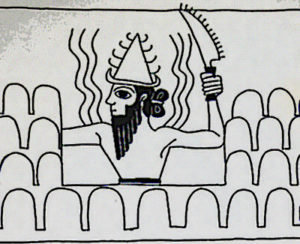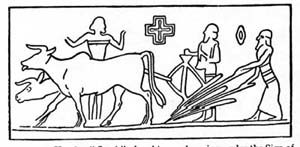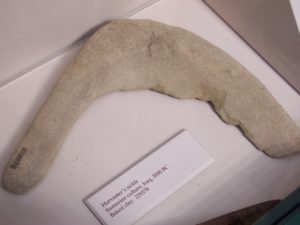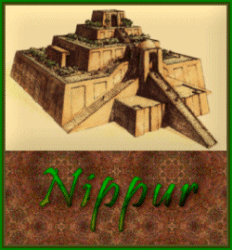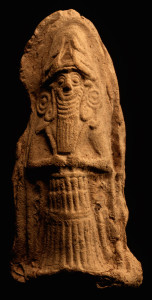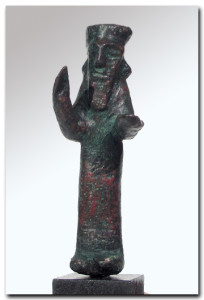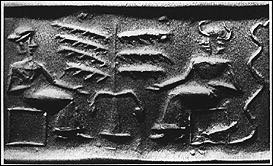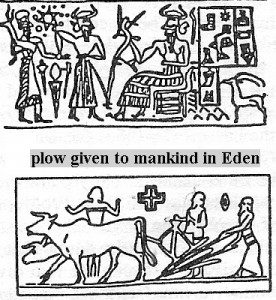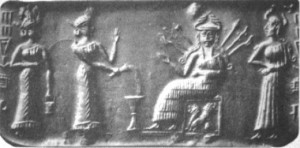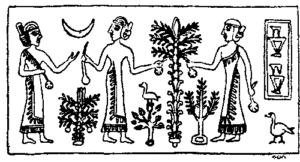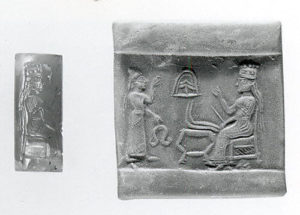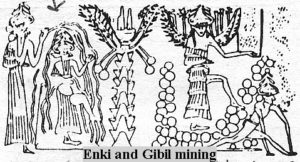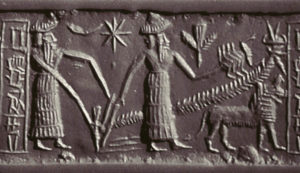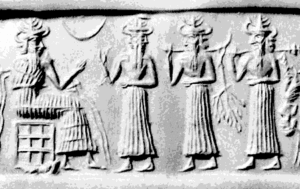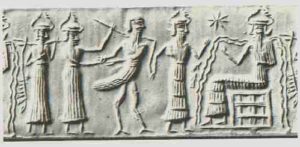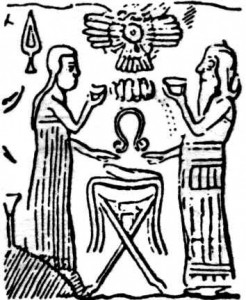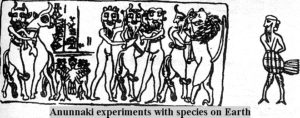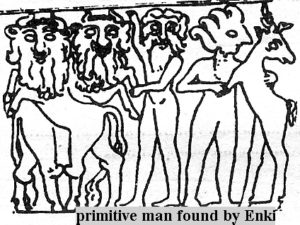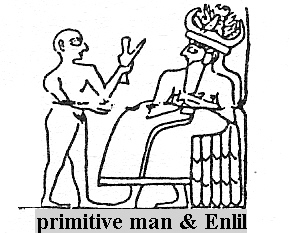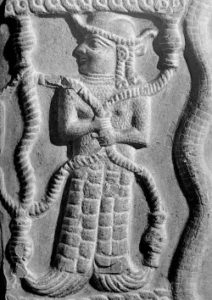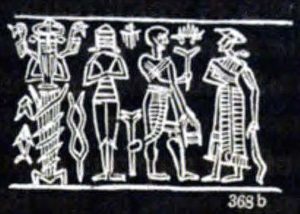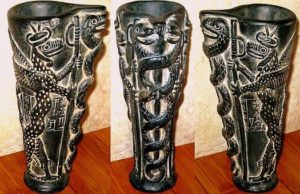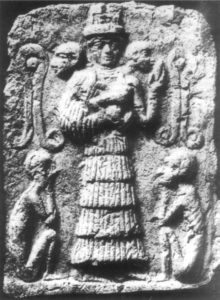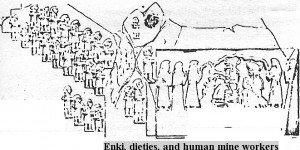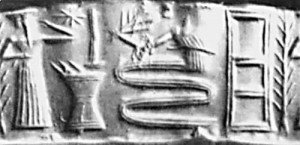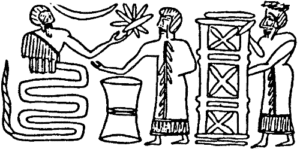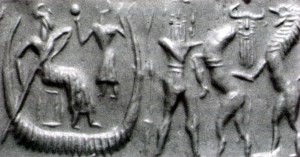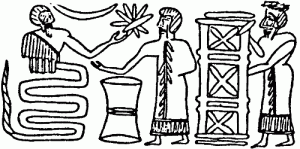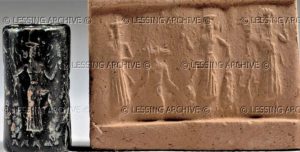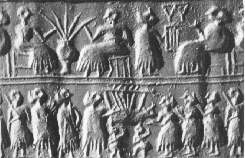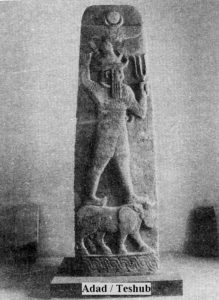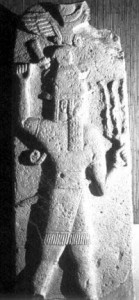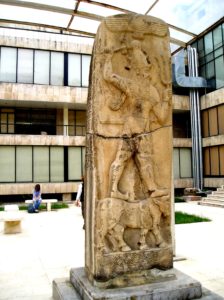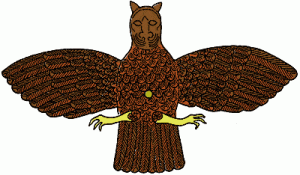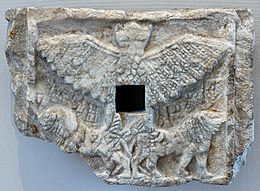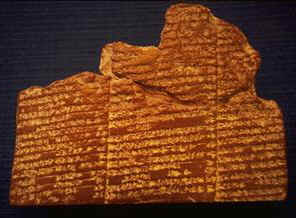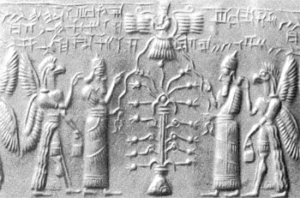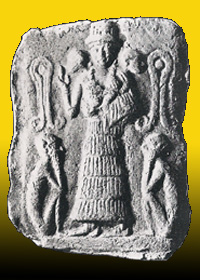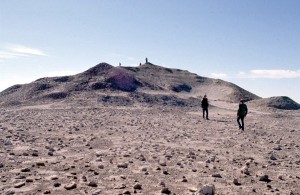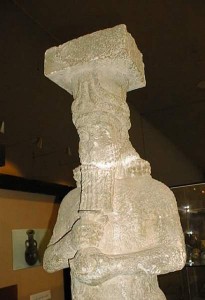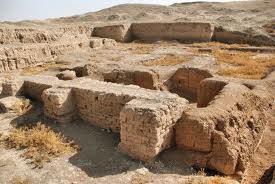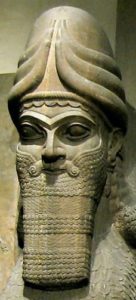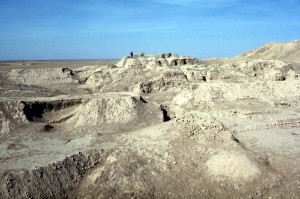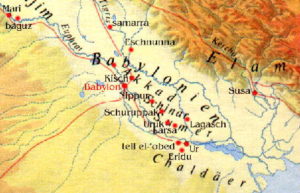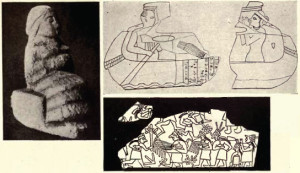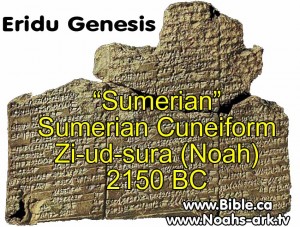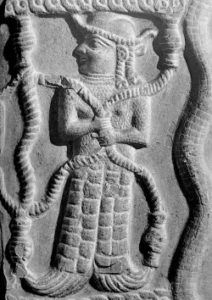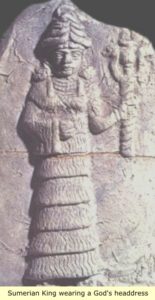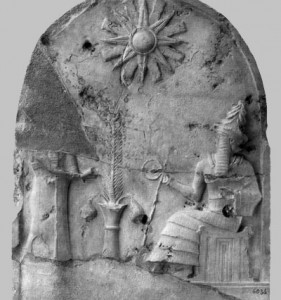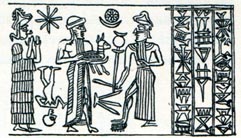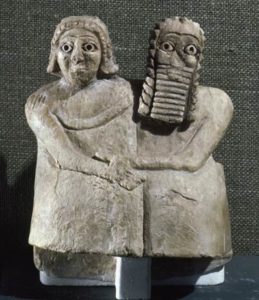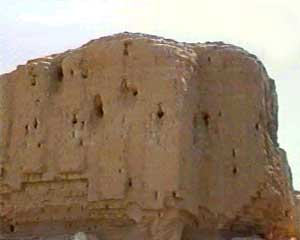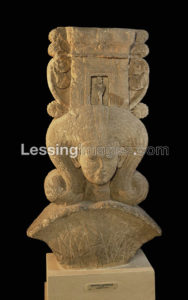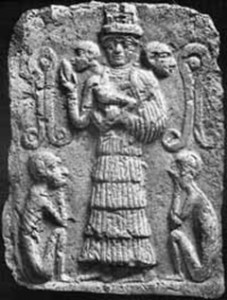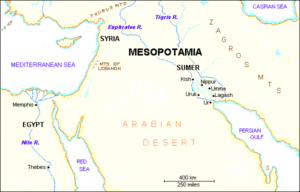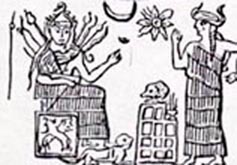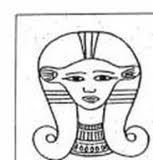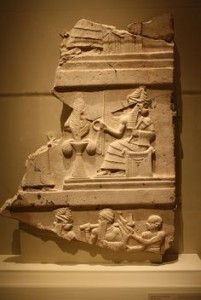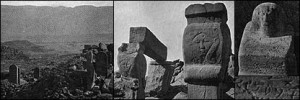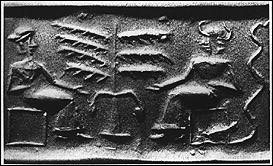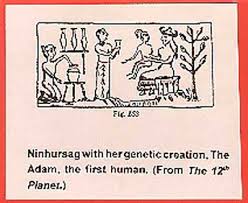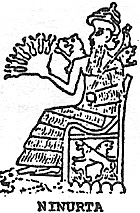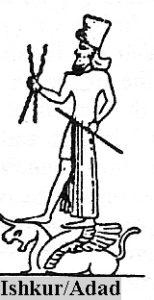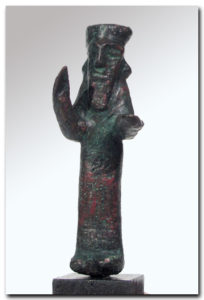Souce: Lambert, W. G. (1996) Babylonian Wisdom Literature. Eisenbrauns, Winona Lake, Indiana.
Source for the Instructions of Shuruppak: Black, J.A., Cunningham, G., Robson, E., and Zólyomi, G., The Electronic Text Corpus of Sumerian Literature, Oxford 1998- .
(Texts: All Artifacts, Color Coding, & Writings in Bold Type With Italics Inside Parenthesis, are Added by Editor R. Brown, not the Authors, Translators, or Publishers!)
(gods in blue …mixed-breed demigods in teal...)
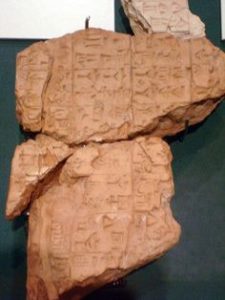 (ancient cuneiform Instructions of Shuruppak Tablet)
(ancient cuneiform Instructions of Shuruppak Tablet)
1-13 In those days, in those far remote days, in those nights,
in those faraway nights, in those years, in those far remote years,
at that time the wise one who knew how to speak in elaborate words lived in the Land;
Curuppag, the wise one, who knew how to speak with elaborate words lived in the Land.
Curuppag gave instructions to his son; Curuppag (Biblical Lamech), the son of Ubara-Tutu (Biblical Methuselah)
gave instructions to his son Zi-ud-sura (Biblical Noah):
My son, let me give you instructions: you should pay attention!
Zi-ud-sura, let me speak a word to you: you should pay attention!
Do not neglect my instructions! Do not transgress the words I speak!
The instructions of an old man are precious; you should comply with them!
14 You should not buy a donkey which brays; it will split (?) your midriff (?).
15-18 You should not locate a field on a road; ……
You should not plow a field at (1 ms. adds: a road or) a path; …….
You should not make a well in your field: people will cause damage on it for you.
You should not place your house next to a public square: there is always a crowd (?) there.
19-20 You should not vouch for someone: that man will have a hold on you; and you yourself,
you should not let somebody vouch for you (1 ms. adds:: that man will despise (?) you).
21 You should not make an inspection (?) on a man: the flood (?) will give it back (?) to you.
22-27 You should not loiter about where there is a quarrel; you should not let the quarrel make you a witness.
You should not let (?) yourself …… in a quarrel.
You should not cause a quarrel; ……. …… the gate of the palace …….
Stand aside from a quarrel, …… you should not take (?) another road.
28-31 You should not steal anything; you should not …… yourself.
You should not break into a house; you should not wish for the money chest (?).
A thief is a lion, but after he has been caught, he will be a slave.
My son, you should not commit robbery; you should not cut yourself with an ax.
32-34 You should not make a young man best man.
You should not …… yourself.
You should not play around with a married young woman: the slander could be serious.
My son, you should not sit alone in a chamber with a married woman.
35-38 You should not pick a quarrel; you should not disgrace yourself.
You should not …… lies; …….
You should not boast; then your words will be trusted.
You should not deliberate for too long (?); you cannot bear …… glances.
39-41 You should not eat stolen food with anyone (1 ms. has instead: a thief).
You should not sink (?) your hand into blood.
After you have apportioned the bones, you will be made to restore the ox, you will be made to restore the sheep.
42-43 You should not speak improperly; later it will lay a trap for you.
44-46 You should not scatter your sheep into unknown pastures.
You should not hire someone’s ox for an uncertain …….
A safe …… means a safe journey.
47 You should not travel during the night: it can hide both good and evil.
48 You should not buy an onager: it lasts (?) only until the end of the day.
49 You should not have sex with your slave girl: she will chew you up (?).
50 You should not curse strongly: it rebounds on you.
51-52 You should not draw up water which you cannot reach (1 ms. has instead: grasp): it will make you weak.
1 line unclear
53 You should not drive away a debtor: he will be hostile towards you.
54-57 You should not establish a home with an arrogant man: he will make your life like that of a slave girl.
You will not be able to travel through any human dwelling without be being shouted at: “There you go! There you go!”
58-59 You should not undo the …… of the garden’s reed fence; “Restore it! Restore it!” they will say to you.
60 You should not provide a stranger (?) with food; you should not wipe out (?) a quarrel.
61-62 My son, you should not use violence (?); …….
You should not commit rape on someone’s daughter; the courtyard will learn of it.
63-64 You should not drive away a powerful (1 ms. has instead: strong) man; you should not destroy the outer wall.
You should not drive away a young man; you should not make him turn against the city.
65-66 The eyes of the slanderer always move around as shiftily as a spindle.
You should never remain in his presence; his intentions (?) should not be allowed to have an effect (?) on you.
67 You should not boast in beer halls (1 ms. has instead: breweries) like a deceitful man:
(1 ms. adds: then your words will be trusted.)
68-72 Having reached the field of manhood, you should not jump (?) with your hand.
The warrior is unique, he alone is the equal of many; Utu is unique, he alone is the equal of many.
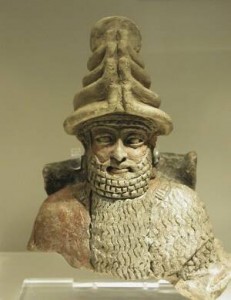 (Utu, Nannar‘s son, Enlil‘s grandson, Enlil‘s Space Port Commander)
(Utu, Nannar‘s son, Enlil‘s grandson, Enlil‘s Space Port Commander)
With your life you should always be on the side of the warrior; with your life you should always be on the side of Utu.
73-75 Curuppag (Shuruppak) gave these instructions to his son.
Curuppag, the son of Ubara-Tutu, gave these instructions to his son Zi-ud-sura (Noah).
76-82 A second time, Curuppag gave instructions to his son.
Curuppag, the son of Ubara-Tutu gave instructions to his son Zi-ud-sura (Noah):
My son, let me give you instructions: you should pay attention!
Zi-ud-sura, let me speak a word to you: you should pay attention!
Do not neglect my instructions! Do not transgress the words I speak!
(1 ms. adds the line: The instructions of an old man are precious; you should comply with them!)
83-91 The beer-drinking mouth …….
My little one …….
The beer-drinking mouth …….
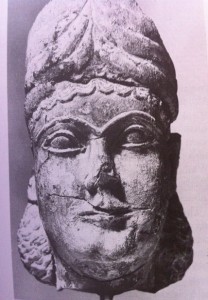 (Ninkasi, Enki‘s & Ninhursag‘s daughter, brew-master, Goddess of Beer)
(Ninkasi, Enki‘s & Ninhursag‘s daughter, brew-master, Goddess of Beer)
Ninkasi .……
5 lines unclear
92-93 Your own man will not repay (?) it for you.
The reed-beds are ……, they can hide (?) slander.
94-96 The palace is like a mighty river: its middle is goring bulls;
what flows in is never enough to fill it, and what flows out can never be stopped.
97-100 When it is about someone’s else bread, it is easy to say “I will give it to you”,
but the time of actual giving can be as far away as the sky.
If you go after the man who said “I will give it to you”,
he will say “I cannot give it to you — the bread has just been finished up”.
101-102 Property is something to be expanded (?); but nothing can equal my little ones.
103-105 The artistic mouth recites words; the harsh mouth brings litigation documents; the sweet mouth gathers sweet herbs.
106-108 The garrulous (1 ms. has instead: liar) fills (?) his bread bag;
the haughty one brings an empty bag and can fill his empty mouth only with boasting.
109 Who works with leather will eventually (?) work with his own leather.
110 The strong one can escape (?) from anyone’s hand.
111-114 The fool loses something.
When sleeping, the fool loses something.
“Do not tie me up!” he pleads; “Let me live!” he pleads.
115-117 The imprudent decrees fates; the shameless one piles up (?) things in another’s lap:
“I am such that I deserve admiration”.
118 A weak wife is always seized (?) by fate.
119-123 If you hire a worker, he will share the bread bag with you;
he eats with you from the same bag, and finishes up the bag with you.
Then he will quit working with you and, saying “I have to live on something”, he will serve at the palace.
124-125 You tell your son to come to your home; you tell your daughter to go to her woman’s quarters.
126 You should not pass judgment when you drink beer.
127 You should not worry unduly about what leaves the house.
128-130 Heaven is far, earth is most precious, but it is with heaven that you multiply your goods,
and all foreign lands breathe under it.
131-133 At harvest time, at the most priceless time, collect like a slave girl, eat like a queen;
my son, to collect like a slave girl, to eat like a queen, this is how it should be.
134-142 Who insults can hurt only the skin; greedy eyes (?), however, can kill.
The liar, shouting, tears up his garments.
Insults bring (?) advice to the wicked.
To speak arrogantly is like an abscess: a herb that makes the stomach sick.
1 line is unclear
My words of prayer bring abundance.
Prayer is cool water that cools the heart.
Only (?) insults and stupid speaking receive the attention of the Land.
143-145 Curuppag gave these instructions to his son.
Curuppag, the son of Ubara-Tutu, gave these instructions to his son Zi-ud-sura.
146-152 A third time, Curuppag gave instructions to his son.
Curuppag (Biblical Lamech), the son of Ubara–Tutu (Biblical Methuselah)
gave instructions to his son Zi-ud-sura (Biblical Noah):
My son, let me give you instructions: you should pay attention!
Zi-ud-sura, let me speak a word to you: you should pay attention!
Do not neglect my instructions! Do not transgress the words I speak!
(Some mss. add the line: The instructions of an old man are precious; you should comply with them! )
153 You should not beat a farmer’s son: he has constructed (?) your embankments and ditches.
154-164 You should not buy a prostitute: she is a mouth that bites.
You should not buy a house-born slave: he is a herb that makes the stomach sick.
You should not buy a free man: he will always lean against the wall.
You should not buy a palace slave girl: she will always be the bottom of the barrel (?).
You should rather bring down a foreign slave from the mountains,
or you should bring somebody from a place where he is an alien;
my son, then he will pour water for you where the sun rises and he will walk before you.
He does not belong to any family, so he does not want to go to his family;
he does not belong to any city, so he does not want to go to his city.
(1 ms. adds 2 lines: He cannot knock at the door of ……, he cannot enter …….)
He will not …… with you, he will not be presumptuous with you.
165-167 My son, you should not travel alone eastwards.
Your acquaintance should not …….
168-169 A name placed on another one ……; you should not pile up a mountain on another one.
170-171 Fate is a wet bank; it can make one slip.
172-174 The elder brother is indeed like a father; the elder sister is indeed like a mother.
Listen therefore to your elder brother, and you should be obedient to your elder sister as if she were your mother.
175-176 You should not work using only your eyes; you will not multiply your possessions using only your mouth.
177 The negligent one ruins (?) his family.
178-180 The need for food makes some people ascend the mountains; it also brings traitors and foreigners,
since the need for food brings down other people from the mountains.
181-182 A small city provides (?) its king with a calf; a huge city digs (?) a house plot (?).
183-188 …… is well equipped.
The poor man inflicts all kinds of illnesses on the rich man.
The married man is well equipped; the unmarried makes his bed in a haystack (?).
He who wishes to destroy a house will go ahead and destroy the house;
he who wishes to raise up will go ahead and raise up.
189-192 By grasping the neck of a huge ox, you can cross the river.
By moving along (?) at the side of the mighty men of your city, my son, you will certainly ascend (?).
193-201 When you bring a slave girl from the hills, she brings both good and evil with her.
The good is in the hands; the evil is in the heart.
The heart does not let go of the good; but the heart cannot let go of the evil either.
As if it were a watery place, the heart does not abandon the good.
Evil is a store-room …….
(1 ms. adds:2 lines unclear)
May the boat with the evil sink in the river!
May his waterskin split in the desert!
202-203A loving heart maintains a family; a hateful heart destroys a family.
204-207 To have authority, to have possessions and to be steadfast are princely divine powers (alien technologies).
You should submit to the respected; you should be humble before the powerful.
My son, you will then survive (?) against the wicked.
208-212 You should not choose a wife during a festival.
Her inside is illusory (?); her outside is illusory (?).
The silver on her is borrowed; the lapis lazuli on her is borrowed
(1 ms. has instead the line: ……; the jewelery on her is borrowed, the jewelery on her is borrowed).
The dress on her is borrowed; the linen garment on her is borrowed.
With …… nothing (?) is comparable.
213-214 You should not buy a …… bull.
You should not buy a vicious bull; …… a hole (?) in the cattle-pen …….
215 One appoints (?) a reliable woman for a good household.
216-217 You should not buy a donkey at the time of harvest.
A donkey which eats …… will …… with another donkey.
218-219 A vicious donkey hangs its neck; however, a vicious man, my son, …….
220 A woman with her own property ruins the house.
221 A drunkard will drown the harvest.
222-234 A female burglar (?) …… ladder; she flies into the houses like a fly.
A she-donkey …… on the street. A sow suckles its child on the street.
A woman who pricked herself begins to cry and holds the spindle which pricked (?) her in her hand.
She enters every house; she peers into all streets. …… she keeps saying “Get out!”
She looks around (?) from all parapets. She pants (?) where there is a quarrel.
2 lines unclear
235-241 Marry (?) …… whose heart hates (?).
My son, ……
4 lines unclear
A heart which overflows with joy …….
242-244 Nothing at all is to be valued, but life should be sweet.
You should not serve things; things should serve you.
My son, …….
245 You should not …… grain; its …… are numerous.
246-247 You should not abuse a ewe; otherwise you will give birth to a daughter.
You should not throw a lump of earth into the money chest (?); otherwise you will give birth to a son.
248-249 You should not abduct a wife; you should not make her cry (?).
The place where the wife is abducted to …….
251 “Let us run in circles (?), saying: “Oh, my foot, oh, my neck!”.
Let us with united forces (?) make the mighty bow!”
252-253 You should not kill a ……, he is a child born by …….
You should not kill …… like ……; you should not bind him.
254 The wet-nurses in the women’s quarters determine the fate of their lord.
255-260 You should not speak arrogantly to your mother; that causes hatred for you.
You should not question the words of your mother and your personal god.
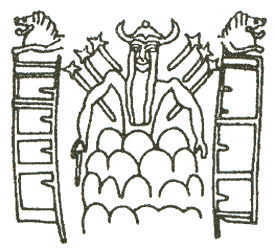
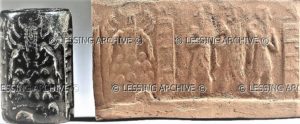 (Sun god Utu‘s blast-off in the mountains, launch towers, effects brighter than the Sun)
(Sun god Utu‘s blast-off in the mountains, launch towers, effects brighter than the Sun)
The mother, like Utu, gives birth to the man; the father, like a god, makes him bright (?).
The father is like a god: his words are reliable.
The instructions of the father should be complied with.
261 Without suburbs a city has no centre either.
262-263 My son, a field situated at the bottom of the embankments, be it wet or dry, is nevertheless a source of income.
264 it is inconceivable (?) that something is lost forever.
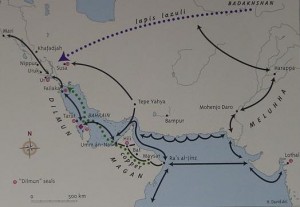
(Dilmun, the pristine lands on the Persian Gulf, lands given by Enki to his daughter Ninsikila, Enki brought to her lands the sweet water)
265 …… of Dilmun ……
266-271 To get lost is bad for a dog; but terrible for a man
(1 ms. has instead: An unknown place is terrible; to get lost is shameful (?) for a dog).
On the unfamiliar way at the edge of the mountains, the gods of the mountains are man-eaters.
They do not build houses there as men do; they do not build cities there as men do.
1 line unclear
272-273 For the shepherd, he stopped searching, he stopped bringing back the sheep.
For the farmer (?), he stopped plowing the field.
1 line unclear
274-276 This gift of words is something which soothes the mind ……; when it enters the palace, it soothes the mind …….
The gift of many words ….. stars.
277 These are the instructions given by Curuppag, the son of Ubara-Tutu.
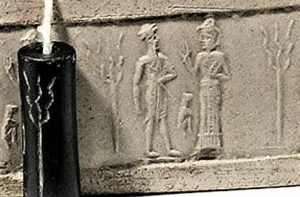
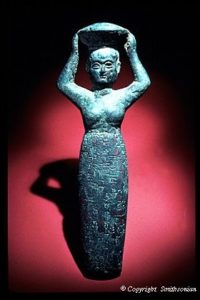 (semi-divine king & Nisaba with stylus & tablet; Nisaba the Goddess of Scribes & Grains)
(semi-divine king & Nisaba with stylus & tablet; Nisaba the Goddess of Scribes & Grains) 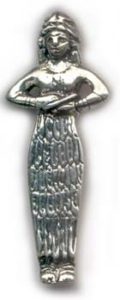
278-280 Praise be to the lady who completed the great tablets, the maiden Nisaba,
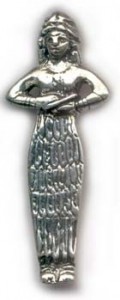 (Nisaba, Enlil‘s mother-in-law, Master Scribe of gods & men, Goddess of Grains)
(Nisaba, Enlil‘s mother-in-law, Master Scribe of gods & men, Goddess of Grains)
that Curuppag, the son of Ubara-Tutu gave his instructions!
MS in Sumerian on clay, Sumer, ca. 2600 BC, 1 tablet, 8,7×8,7×2,5 cm, 2 columns + 2 blank columns, 8+8 compartments in cuneiform script, reverse blank. Context: For the Old Babylonian recension of the text, see MSS 2817 (lines 1-22), 3352 (lines 1-38), 2788 (lines 1-45), 2291 (lines 88-94), 2040 (lines 207-216), 3400 (lines 342-345), MS 3176/1, text 3, and 3366.
Context: For the Old Babylonian recension of the text, see MSS 2788 (lines 1-45), 2291 (lines 88-94) and 2040 (lines 207-216).
Commentary: The present Early Dynastic tablet is one of a few that represent the earliest literature in the world. Only 3 groups of texts are known from the dawn of literature: The Shuruppak instructions, The Kesh temple hymn, and various incantations (see MS 4549). The instructions are addressed by the ante-diluvian ruler Shuruppak, to his son Ziusudra, who was the Sumerian Noah, cf. MS 3026, the Sumerian Flood Story, and MS 2950, Atra- Hasis, the Old Babylonian Flood Story.
The Shuruppak instructions can be said to be the Sumerian forerunner of the 10 Commandments and some of the proverbs of the Bible: Line 50: Do not curse with powerful means (3rd Commandment); lines 28: Do not kill (6th Commandment); line 33-34: Do not laugh with or sit alone in a chamber with a girl that is married (7th Commandment); lines 28-31: Do not steal or commit robbery (8th Commandment); and line 36: Do not spit out lies (9th Commandment).
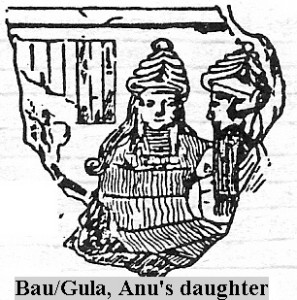
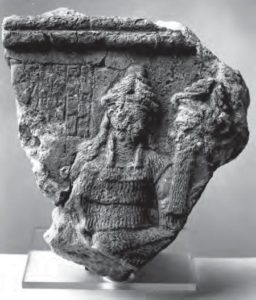 (royal princess Bau, Ninurta‘s spouse & aunt, patron goddess of Isin, & Ninurta)
(royal princess Bau, Ninurta‘s spouse & aunt, patron goddess of Isin, & Ninurta)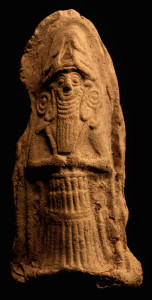
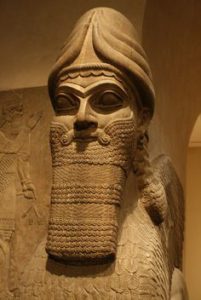 (father King Anu, & Bau‘s spouse Ninurta)
(father King Anu, & Bau‘s spouse Ninurta)